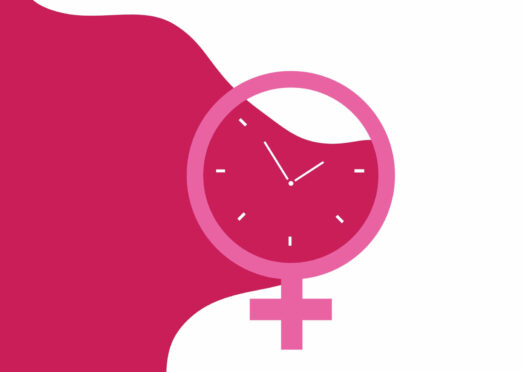
Major charities are urging the Scottish Government to waste no more time in appointing a Women’s Health Champion.
The proposed appointment to help close widening gender gaps in care and treatment was announced with great fanfare last August before we revealed how it might take three years before an appointment was made.
An open letter to ministers from 17 leading charities called for the appointment to be made urgently before Nicola Sturgeon promised an appointment by the end of the summer. Despite repeated claims an appointment is imminent, the crucial role is still unfilled.
Signatories to the letter have questioned the ongoing delay and said no more time should be wasted.
Jane-Claire Judson, chief executive at Chest Heart & Stroke Scotland, said: “A Women’s Health Champion needs to be appointed soon, without delay.
“Women’s health is extremely important to us. We want to proactively tackle some of the inequalities that women face when it comes to their health, not only for people with our conditions, but for our staff and volunteers too.
“We have developed an action plan which sets out how we’ll be supporting the delivery of the Scottish Government’s plan to make sure we’re addressing some of the inequalities women typically experience in healthcare. Heart disease kills nearly three times as many women as breast cancer in Scotland and women have a worse rate of survival after a heart attack than men. Women are also less likely to be prescribed drugs that can help reduce the chance of a second heart attack. We want to help change this.
“That’s why we’re supporting The Sunday Post’s call to have a Women’s Health Champion appointed urgently to help address these health inequalities. This dedicated role could help to improve women’s health and support the Scottish Government’s Women’s Health Plan.”
Poverty Alliance director Peter Kelly said: “Scotland needs a Women’s Health Champion because we need to shine a light on the injustice of health inequalities linked to poverty.
“It’s completely unjust that life expectancies for women in the most deprived communities of Scotland are years behind those in the least deprived areas.”
He added that major cancers are affecting women in poorer areas much worse than those in richer postcodes.
“Public Health Scotland says that rates of breast, bowel, and cervical cancer have typically been 30% to 50% higher in the most deprived areas of Scotland compared to the least deprived areas.
“These kinds of inequalities have no place in a just Scotland.
“We want the new champion to be appointed soon, so that they can lead the way in ending them.”
England announced a similar role in January and filled it in June with the appointment of Dame Lesley Regan. The 17 charities which include the National Childbirth Trust, Parkinson’s UK Scotland and Alzheimer Scotland and Age Scotland all point to poorer outcomes for women with illness.
National Record Scotland’s (NRS) figures show that the healthy life expectancy has fallen in women in recent years.
For females, healthy life expectancy at birth remained fairly similar between 2009-2011 and 2014-2016 but has decreased every year since.
Women in North Ayrshire can only expect to live 54 years before suffering the impact of chronic diseases.
In poorer areas, more than 33% of a person’s life span is spent in poor health compared with 15% in least deprived areas, NRC adds.
The Scottish Government said: “We have reaffirmed our commitment to appoint a Women’s Health Champion in this year’s Programme for Government. We are currently considering a number of candidates to take on the role of the Women’s Health Champion and expect to make an announcement about the appointment soon.”

Enjoy the convenience of having The Sunday Post delivered as a digital ePaper straight to your smartphone, tablet or computer.
Subscribe for only £5.49 a month and enjoy all the benefits of the printed paper as a digital replica.
Subscribe